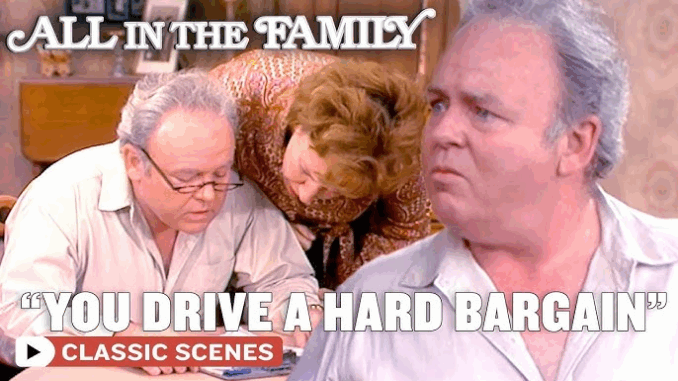
Over 50 years since its premiere, All in the Family continues to resonate as a trailblazer in American television. At a time when most sitcoms played it safe, this bold, unfiltered series held up a mirror to society — and made us laugh while doing it.
The Birth of Socially Conscious Comedy
Premiering on CBS in 1971, All in the Family introduced viewers to Archie Bunker, a loud-mouthed, blue-collar bigot who was as lovable as he was flawed. Played with depth and nuance by Carroll O’Connor, Archie was a product of his time — but also a challenge to it. Through the generational clashes between Archie and his liberal son-in-law Michael “Meathead” Stivic, the show addressed real-world issues head-on.
Norman Lear, the show’s creator, believed television could do more than entertain — it could provoke thought and dialogue. Each episode tackled hot-button topics like racism, women’s rights, war, and religion, bringing them into American living rooms for the first time with honesty and humor.
Breaking the Mold of Traditional Sitcoms
Unlike its predecessors, All in the Family didn’t rely on escapism. Its gritty, working-class Queens setting, modest apartment set, and confrontational dialogue grounded the show in reality. The laughter was real — but so was the discomfort. It was this unique blend of comedy and controversy that made it unforgettable.
The show also pioneered the “live audience” format, lending authenticity to the reactions. Viewers weren’t just passive spectators; they became participants in a cultural conversation.
Enduring Influence
The ripple effect of All in the Family is still felt today. It paved the way for series like Roseanne, The Simpsons, Family Guy, and even Modern Family — all of which owe a creative debt to Lear’s daring vision. Its spin-offs, particularly The Jeffersons and Maude, also carved out their own legacies in the television canon.
In recent years, ABC has aired live re-creations of classic episodes, drawing millions of viewers and reminding new generations why the show remains so powerful.
Final Thoughts
All in the Family didn’t just reflect American culture — it helped shape it. By blending comedy with courage, the series changed the rules of what television could be. Its legacy remains a benchmark for any show that seeks not just to entertain, but to engage.
